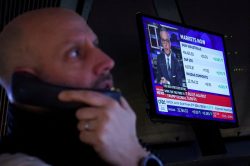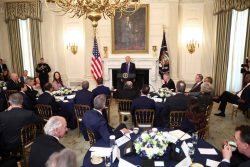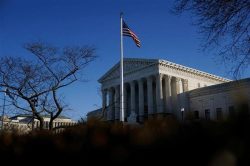17:53 JST, February 23, 2022
SEOUL (Reuters) — The international community should form a strategy to provide North Korea with at least 60 million doses of COVID-19 vaccines to head off humanitarian disaster, an independent U.N. human rights investigator said on Wednesday.
The vaccines could be a way to persuade the country to ease lockdowns that have left some of its 26 million people on the verge of starvation, Tomas Ojea Quintana, U.N. special rapporteur on human rights in the Democratic People’s Republic of Korea, told a briefing in Seoul.
“It is imperative that the population of North Korea start to be vaccinated… so that the government will have no excuse to maintain the closing of the borders,” he said.
North Korea is not known to have imported any COVID-19 vaccines, and the COVAX global COVID-19 vaccine-sharing program has scaled back the number of doses allocated for the country.
Last year North Korea rejected planned shipments of AstraZeneca’s COVID-19 vaccine that were being organized under COVAX due to concerns over side effects, a South Korean think-tank said at the time.
Pyongyang also turned down an offer of 3 million COVID-19 vaccine doses of China’s Sinovac Biotech, UNICEF said last year.
Authorities in Pyongyang appeared to be suspicious of receiving just a partial amount of vaccines and then to be under pressure to accept more, something that could be resolved by reaching a deal to provide enough doses for the whole country, Ojea Quintana said.
The U.N. investigator said he had raised the prospect of providing 60 million vaccines to North Korea during meetings with international diplomats in Seoul, but that such a proposal had yet to be formally made to Pyongyang and a number of issues would need to be worked out, including payments and any sanctions hurdles.
North Korea has not reported any COVID-19 cases and has imposed strict anti-virus measures, including border closures and domestic travel curbs. For the first time since early 2020, it began allowing a few trains to cross the border from China last month.
“The most serious situation in North Korea is food,” Ojea Quintana said, adding that some of the most vulnerable populations appear at risk of starvation.
Even if North Korea’s government sees a legitimate public health reason for maintaining the restrictions, it has an obligation to balance that with people’s need for food, which is linked to their freedom of movement, he said.
The border and movement restrictions have been particularly damaging for North Koreans relying on commercial activities along the border with China, and that has been compounded by the impact of sanctions, Ojea Quintana added.
He repeated calls for sanctions on North Korea to be more flexible, to avoid causing humanitarian harm to ordinary residents.
Top Articles in News Services
-

Survey Shows False Election Info Perceived as True
-

Prudential Life Expected to Face Inspection over Fraud
-

Hong Kong Ex-Publisher Jimmy Lai’s Sentence Raises International Outcry as China Defends It
-

Japan’s Nikkei Stock Average Touches 58,000 as Yen, Jgbs Rally on Election Fallout (UPDATE 1)
-

Trump Names Former Federal Reserve Governor Warsh as the Next Fed Chair, Replacing Powell
JN ACCESS RANKING
-

Japan PM Takaichi’s Cabinet Resigns en Masse
-

Japan Institute to Use Domestic Commercial Optical Lattice Clock to Set Japan Standard Time
-

Israeli Ambassador to Japan Speaks about Japan’s Role in the Reconstruction of Gaza
-

Man Infected with Measles Reportedly Dined at Restaurant in Tokyo Station
-

Videos Plagiarized, Reposted with False Subtitles Claiming ‘Ryukyu Belongs to China’; Anti-China False Information Also Posted in Japan
























